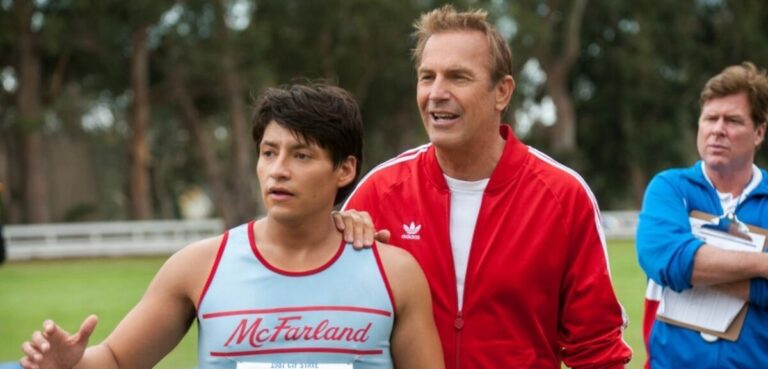Kevin Costner’s Transformative Role in McFarland, USA: A New Chapter in Sports Cinema
Authentic Coaching: Costner’s Groundbreaking Approach
In McFarland, USA, Kevin Costner delivers a refreshingly sincere and layered performance as Coach Jim White, steering clear of the usual sports film clichés. Instead of relying on exaggerated pep talks or improbable victories, Costner embodies a mentor whose commitment is deeply rooted in empathy and cultural understanding. His coaching transcends the track, focusing on nurturing the personal growth of young athletes from a modest, often overlooked community. This portrayal offers audiences a nuanced look at leadership—one that values patience, compassion, and steadfast dedication over mere competition.
The film’s strength lies in its honest depiction of both the coach and his runners, highlighting their real-life challenges and achievements beyond the sport itself. Key themes include:
- Empowering the Community: Using coaching as a tool for social upliftment and change.
- Building Genuine Bonds: Cultivating trust and resilience across diverse cultural backgrounds.
- Facing Hard Truths: Portraying economic hardships and cultural obstacles without gloss.
| Element | Conventional Sports Films | McFarland, USA’s Distinctive Take |
|---|---|---|
| Coaching Style | Commanding and dramatic | Supportive and culturally attuned |
| Motivation | Victory at any cost | Personal growth and community pride |
| Conflict | Internal team rivalries | External socio-economic challenges |
Challenging Stereotypes: A Rich, Culturally Respectful Narrative
McFarland, USA distinguishes itself by delving beyond the typical underdog storyline, offering a profound exploration of the characters’ lives and the socio-economic realities they navigate. Kevin Costner’s Jim White is portrayed not just as a coach but as a mentor deeply invested in the empowerment and well-being of his athletes, reflecting themes of family loyalty and cultural pride. This approach breathes life into the characters, presenting them as fully developed individuals rather than mere symbols of success.
Highlights that set the film apart include:
- Complex Characterization: Each runner’s unique background, aspirations, and fears are thoughtfully explored, fostering authentic emotional connections.
- Community Transformation: The story illustrates how sports can ignite positive social change within marginalized communities.
- True-to-Life Representation: The casting and cultural details authentically reflect Latino experiences, steering clear of stereotypes common in similar films.
| Aspect | Typical Sports Biopics | McFarland, USA |
|---|---|---|
| Character Depth | Flat hero/underdog archetypes | Rich personal histories and cultural identity |
| Story Focus | Winning the competition | Community resilience and personal development |
| Cultural Portrayal | Surface-level clichés | Authentic Latino cultural representation |
Leadership Rooted in Humility and Connection
Costner’s depiction of Coach White emphasizes the power of humility and genuine human connection over traditional authoritarian coaching methods. His character listens attentively and fosters an environment of mutual respect within a community rich in culture but facing economic adversity. This leadership style not only builds strong athletes but also resilient individuals who learn to overcome obstacles through solidarity and trust.
- Prioritizes empathy, breaking down hierarchical barriers.
- Strengthens community bonds that enhance team cohesion.
- Encourages holistic growth—both personal and athletic.
| Leadership Quality | Effect on Team |
|---|---|
| Humility | Fosters open dialogue and mutual respect |
| Connection | Builds a strong sense of community pride |
By avoiding overused sports movie clichés, Costner’s portrayal highlights that true leadership often emerges from quiet strength and sincere relationships. This fresh take not only enriches the film’s narrative but also inspires viewers to appreciate sports as a platform for social empowerment.
Filmmaking Insights: Crafting Sports Stories with Depth and Heart
McFarland, USA offers valuable lessons for filmmakers seeking to elevate sports dramas beyond formulaic storytelling. Costner’s role exemplifies how a coach can be portrayed as a cultural liaison and empathetic guide, fostering a deeper connection between the audience and the characters. This approach enhances emotional engagement by grounding the story in authentic human experiences and communal victories.
From a cinematic standpoint, the film balances dynamic sports sequences with intimate, reflective moments, creating a rhythm that sustains both excitement and emotional depth. Key recommendations for filmmakers include:
- Highlight Cultural Nuance: Incorporate diverse backgrounds to add richness and authenticity.
- Blend Action with Reflection: Use quieter scenes to deepen character development amid high-energy competition.
- Intentional Casting: Select actors who genuinely embody the spirit and culture of their roles.
| Film Element | Standard Sports Movies | McFarland, USA |
|---|---|---|
| Coach Characterization | Authoritative and predictable | Empathetic and culturally informed |
| Team Interaction | Competitive and tense | Family-like and community-centered |
| Narrative Focus | Winning as the ultimate goal | Emphasizing growth and resilience |
Conclusion: A New Benchmark in Sports Storytelling
Kevin Costner’s compelling performance in McFarland, USA marks a significant evolution in sports cinema, moving away from tired tropes toward a more authentic and culturally rich narrative. His portrayal brings depth and sincerity to the story of a community’s triumph over adversity, resonating with audiences hungry for meaningful and diverse sports films. As the genre continues to evolve, McFarland, USA stands as a powerful example of how storytelling can inspire, unite, and reflect the true spirit of perseverance and cultural pride.







